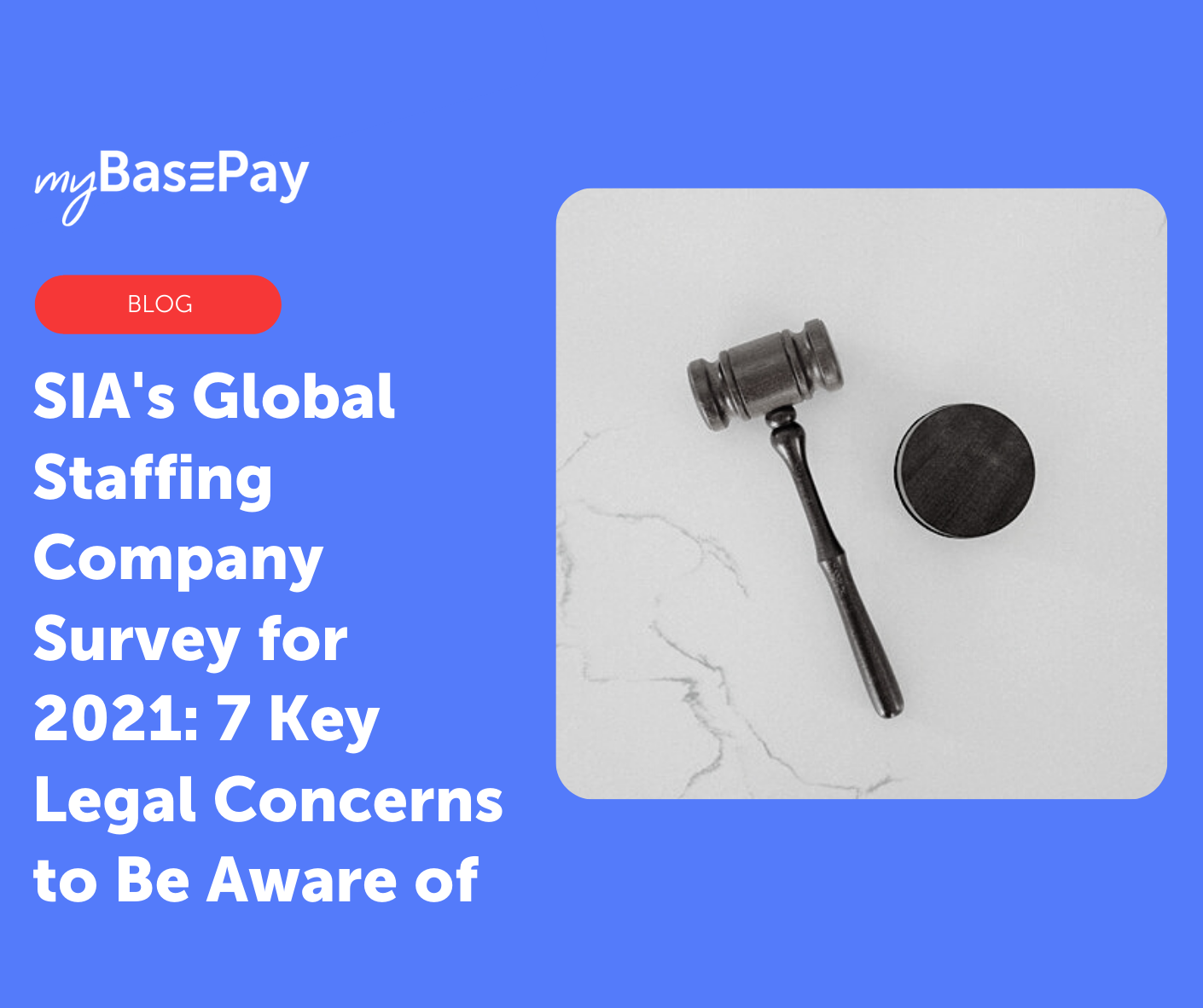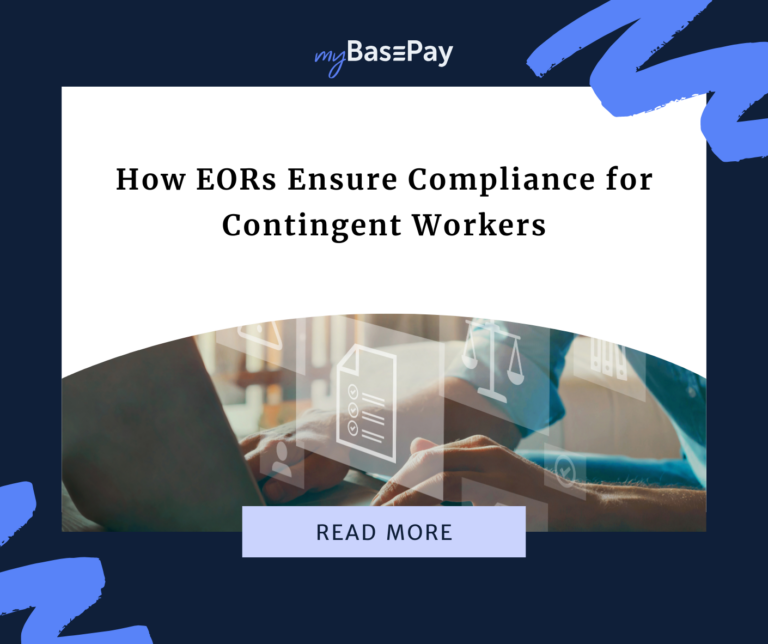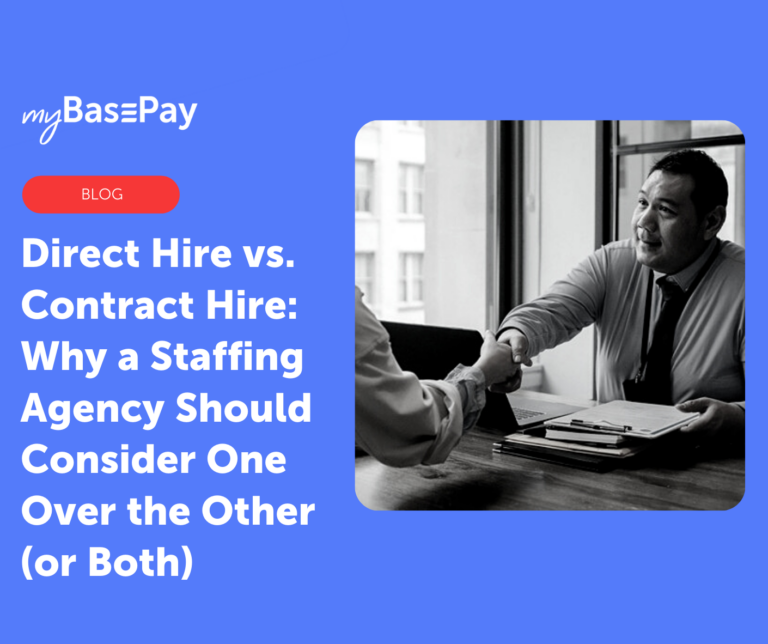SIA’s Global Staffing Company Survey for 2021: 7 Key Legal Concerns to Be Aware of
Which compliance issues and areas facing new legislation and regulation are of the greatest concern to the staffing industry as a whole? New insights from Staffing Industry Analysts’ Global Staffing Company Survey 2021 hold the answers.
A survey of 320 staffing firms in North America asked them to select the top three compliance issues that were having the greatest impact on their business, as well as to highlight forthcoming legislation that seems poised to create the greatest challenges.
By understanding the chief areas of concern identified in this survey, staffing firms can take necessary measures to ensure an appropriate response.
1. Workers Compensation and Health and Safety Claims
Workers’ compensation and health and safety claims were cited by 42 percent of respondents in SIA’s survey, making it the top compliance concern among staffing firms. Much of this is likely linked to OSHA’s stance regarding staffing firms and temporary workers.
As the organization states, “Both host employers and staffing agencies have roles in complying with workplace health and safety requirements and they share responsibility for ensuring worker safety and health. A key concept is that each employer should consider the hazards it is in a position to prevent and correct, and in a position to comply with OSHA standards. For example: staffing agencies might provide general safety and health training, and host employers provide specific training tailored to the particular workplace equipment/hazards.”
2. Immigration and Visas
In the category of upcoming legislation and regulations that most concern staffing firms, immigration issues came in as the top response. This is in large part because of uncertainty surrounding rules related to limitations on H-1B visas and navigating cap cycles.
Of course, in light of the Russia-Ukraine war, the topics of immigration and visas will undoubtedly become even more complex. The United States’ immigration policy has already come under fire as European nations suspend normal immigration requirements for Ukrainian citizens fleeing the war. This could eventually introduce new complications if the U.S. chooses to reassess its current policies in light of these events.
3. Paid Sick Time
Changing legislation regarding various forms of time off also continue to be a major concern for staffing industry leaders. Mandatory sick leave, PTO and family leave all face changing regulations, which can often vary significantly from state to state.
For example, the state of California recently approved a measure in which workers at businesses with 26 or more employees can claim as many as 80 hours of sick leave due to COVID-19. A bill that provides up to 12 weeks of paid family and medical leave is on its way to becoming law in Delaware.
Staffing firms must stay abreast of these and other PTO changes for the states they operate in.
4. Tax Law Changes
While the tax law undergoes some level of change every year (such as changing the amount for individuals’ standard deductions), staffing firms are increasingly concerned about the potential for increased tax burdens due to myriad proposed changes in tax law.
This reflects concerns about the Biden administration’s agenda in how it plans to tax businesses. While the Tax Cuts and Jobs Act passed under the previous administration helped reduce the tax burden for many staffing firms, new initiatives that aim to increase taxes on businesses in general could reverse those savings.
5. Wage and Hour Compliance
Wage and hour/pay and working time compliance was another leading compliance concern for staffing firms, selected by 41 percent of those interviewed. This made it one of the areas that saw the biggest increase in concern in comparison to the 2020 survey.
This area covers the employer’s responsibility to follow federal, state and local wage and hour laws. In some situations, there are also additional regulations set in place by unions for businesses a staffing agency may work with.
Staying up to date on current compliance laws and ensuring that all employee time is tracked accurately are key steps to mitigating potential risks in these areas. However, because laws can vary significantly in different parts of the country, staffing firms must be especially diligent to ensure compliance in all places they do business.
6. Data Privacy
Data privacy laws are more important than ever in our digitally connected age. Cited by 34 percent of respondents, data privacy compliance is further complicated by the fact that the United States doesn’t have a single national law that standardizes what organizations can or can’t do with their data — including reporting data breaches.
Instead, staffing firms must remain cognizant of a variety of laws related to data privacy that may or may not affect them and their partner clients, such as HIPPA, GLBA, COPPA and VPPA.
In addition, staffing firms have the responsibility to protect the significant amount of confidential personal data they obtain from employees and candidates. Organizations that fail to take adequate cybersecurity measures — or fail to report when a data breach occurs — could face legal action.
7. Co-Employment Risk Mitigation
Co-employment and joint liability risk mitigation was cited by 33 percent of staffing firms as a leading compliance issue. This can extend beyond worker safety issues that fall under OSHA. In areas such as worker classification, both partners in a co-employment agreement could be held liable and be subjected to regulatory fines for misclassified employees.
While employer of record services are designed to mitigate much of this risk, staffing firms and their clients must be diligent to ensure they are following state and federal guidelines for properly classifying employees based on their work status.
Much to Manage
While the issues listed here were far and away the most cited by the North American staffing firms surveyed, they hardly represent a comprehensive view of the legal concerns facing the industry.
Areas such as minimum wage increases, 1099 contractor issues and loose contract laws that vary from state to state can create further costs and compliance concerns for staffing firms. Maintaining compliance with diversity, equity and inclusion requirements could also experience further changes in the coming year.
As such, dependable compliance in all areas, from worker classification and visa verification to PTO standards and legal contract support, will become even more important in the days ahead.
Author: Cesar Romero
Cesar is the Head of Marketing at myBasePay, where he’s responsible for overseeing the company’s content marketing, community, and partnerships strategy. He also co-hosts The Ivy Podcast where he interviews executives from Fortune 500 companies on executive leadership. When he’s not helping startups with marketing and community strategy, you can find him paying it forward by serving as a mentor for leading organizations like StartingBloc, Hive, and Global Citizen Year.






